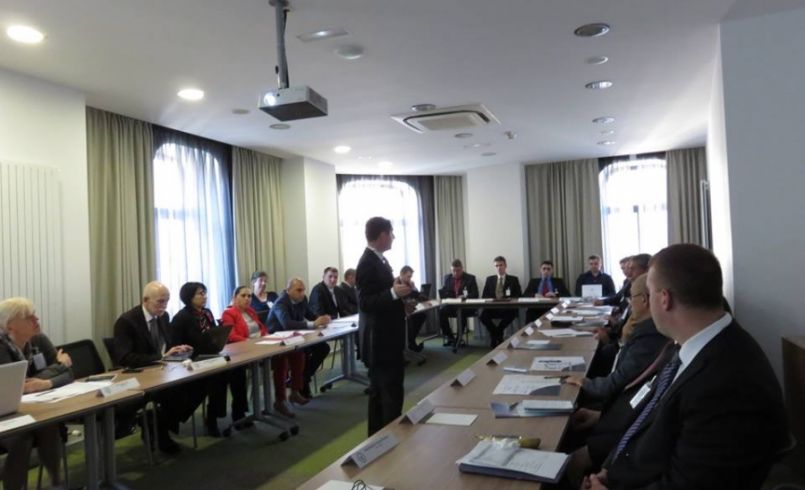- Partnership for Peace Consortium of Defense Aca...
- Partner nations pledge to integrate computer-ba...
Partner nations pledge to integrate computer-based learning practices into Defense Education Enhancement Programs
Bucharest, Romania (April 24, 2015) - Computer-based learning has revolutionized the education community and the Partnership for Peace Consortium's Advanced Distributed Learning (ADL) Working Group is helping to further usher online learning technologies into partner nations' defense education programs.
The ADL Working Group convened an international team of over 30 computer-based learing experts from 15 NATO and PfP nations at the Carol I National Defense University in Bucharest, Romania, from 20-22 April 2015, to highlight the progress of computer-based technologies as incorporated into defense education institutions.
Representatives from NATO's Allied Command Transformation (ACT) in Norfolk, Virginia, and the NATO School in Oberammergau, Germany provided updates on broad computer-based learning technology developments, while Armenia, Bulgaria, Moldova, and Romania provided country-specific updates on their national programs' incorporation of computer-based technologies.
According to the ADL Working Group's co-chaierperson, Ms. Greta Keremidchieva, an outcome of the meeting was a pledge to "promote development and execution of successful computer-based learning strategies to foster education transformation.”
Additionally, Ukraine, Azerbaijan, Georgia and Moldova provided updates on their respective Defense Education Enhancement Programs (DEEP), highlighting the integration of computer-based learning technologies into the defense education programs.
The DEEP program, managed by the PfPC and NATO, aims to assist partner nations in the implementation of their defense education programs, and the ADL Working Group's efforts are going a long way to further partner nations' DEEP programs.
To learn more about the Advanced Distributed Learning (ADL) Working Group, please visit



